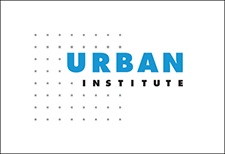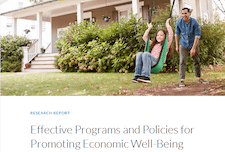Discover financial empowerment resources
Discover financial empowerment resources
Individuals with lower incomes may face a range of economic challenges and barriers to upward mobility. Two types of services that may both contribute to the goal of improving individuals’ financial situations are employment and training (E&T) services, which have the goal of improving...

This report was originally developed to support the work of Feeding America and its member food banks in exploring interventions that support households’ economic well-being. Such strategies can be valuable not only for organizations serving households facing food insecurity, but for agencies and...

A presentation outlining The Financial Clinic and why it was created, model outcomes and...
Increasing interest in the role that consumer-focused policy interventions can play in improving economic outcomes has led to a host of intervention models in recent years. Financial coaching has emerged as one prominent model in this field, aimed at improving consumer financial outcomes by using...
This is a brief on the cost of financially insecure families to Chicago, in terms of cost of eviction and unpaid bills. The financial health of cities depends on financially secure residents. When families have little to no savings and experience a disruption in their income or expenses, bills may...
In this paper, we report our findings from over a dozen interviews with youth apprenticeship coordinators in Wisconsin and Georgia. Although an integrated financial education component is the exception in youth apprenticeship training, we find broad support from our interviewees for the idea that...
This brief and an accompanying interactive map were commissioned by the New York City Department of Consumer Affairs’ Office of Financial Empowerment. The brief provides information on how many New Yorkers are unbanked and underbanked, recognizing their links to financial health. It also...
This overview paper broadly outlines the types of strategies being used to help people move up from poverty. It lays out basic categories for classifying such programs, explains the logic of various approaches, and offers some broad pros and cons of various types of interventions. The accompanying...
The link between economic equity and financial and economic inclusion has long been the focus of community development financial institutions (CDFI). In this brief, we first examine what scale means for CDFIs and note participants’ focus on scaling impact and their concerns about conflating size...
Most employment research focuses on the quantity of work, such as whether or not people are employed, the number of hours they work, and barriers to work. Which hours of the day employees must work has received less attention. This paper examines nonstandard work schedules within the confines of...
When household emergencies strike or there’s not enough in the bank to make it to the next paycheck, some families turn to small-dollar credit—small loans from alternative financial service (AFS) providers, such as payday lenders or pawnshops, or from mainstream sources. In October 2014, the...
Even before the sharp and enduring increase in unemployment brought on by the Great Recession, policymakers and researchers were concerned about the “hollowing out” of the U.S. labor market. Over the last 25 years, employment and earnings growth for workers in middle-skill jobs has lagged...
This brief examines the financial challenges confronting low-income older adults, with a focus on housing costs. It estimates the share of adults who have inadequate income, reports their income sources, and describes their spending patterns. Data come from the American Community Survey and the...
Individual development accounts (IDAs) help low-income families save by matching their personal savings for specific investments, such as a first home, business capitalization, or higher education and training. The Assets for Independence (AFI) program is a federally supported IDA grant program...
This report, “Determinants of Asset Building,” provides a policy-oriented conceptual framework that has the potential to explain saving and asset accumulation across the entire population and to account for the low levels of saving and asset accumulation in the low-income population. The report...
Increasing interest in the role that consumer-focused policy interventions can play in improving economic outcomes has led to a host of intervention models in recent years. Financial coaching has emerged as one prominent model in this field, aimed at improving consumer financial outcomes by using...
In 2012, The Financial Clinic (the “Clinic”) and Branches had the opportunity to influence the emerging financial coaching sector by putting its philosophies and model to test through a random control trial study report titled “An Evaluation of the Impacts and Implementation Approaches of...
The economic health of cities and communities depends on the financial health and stability of their residents. Economically secure families are better able to weather temporary income drops independently and are less likely to rely on local services for housing support and cash assistance....
